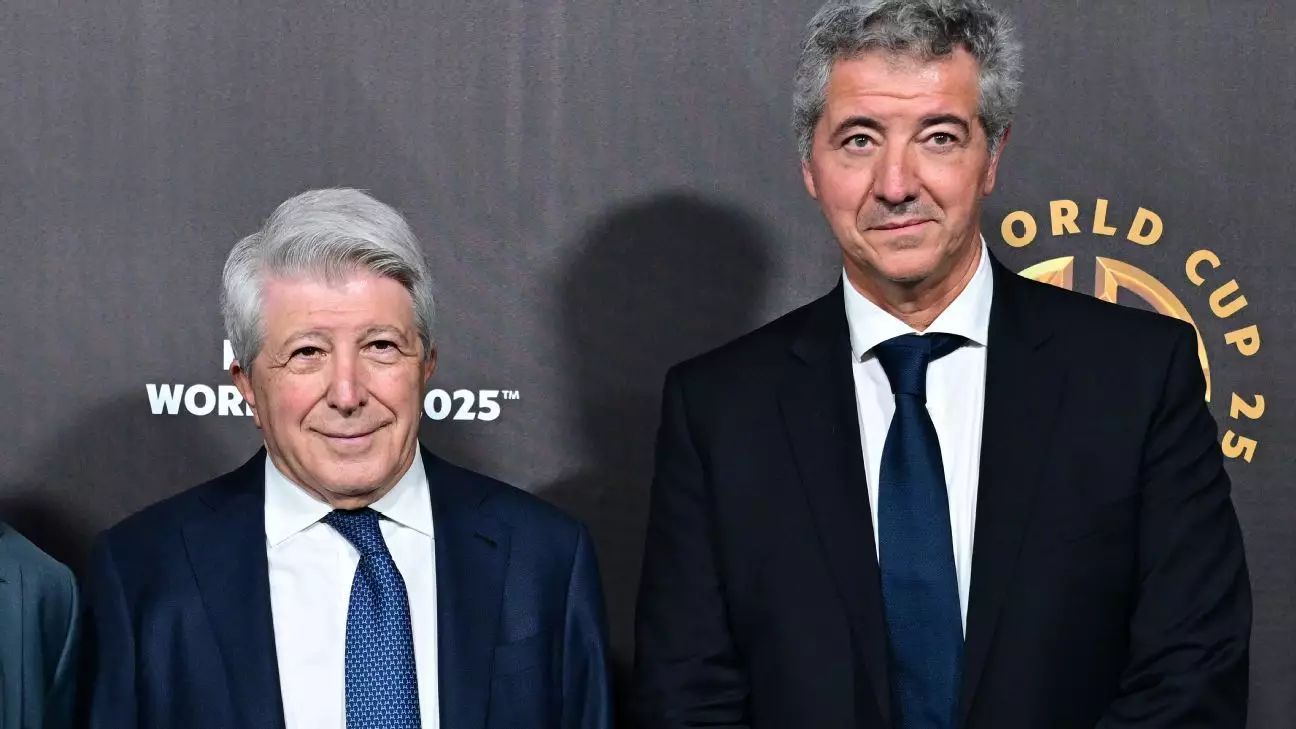In the landscape of global football, the ongoing debate surrounding the Super League has provoked a spectrum of responses from clubs, executives, and stakeholders. Atlético Madrid’s chief executive, Miguel Ángel Gil Marin, recently articulated a critical stance towards the latest iteration of the Super League, now rebranded as the “Unify League.” His remarks shed light on the complexities and consequences of such ambitious projects, particularly concerning their impact on competitive balance and player welfare in European football.
Gil Marin’s discourse on the Super League reflects a broader concern regarding the feasibility and implications of creating a closed league amid Europe’s rich tapestry of football tradition. Initially, the Super League was conceived as a project that promised financial stability and marketability for a select group of elite clubs. However, Marin suggests that this model poses a significant threat to the existing football ecosystem. “At one time, [the Super League] was a project based on a closed league, which would protect a few and put the European football pyramid in danger,” he stated. This perspective emphasizes the need for inclusivity within the sport, urging that any reforms should preserve the competitive balance that characterizes European football.
The assertion that the Super League has devolved into a mere “vindication for one club” underscores the sense of self-interest that Marin perceives at its core. This suggests a lack of cooperation and unity among clubs that traditionally compete on the same field, raising questions about the long-term implications for football camaraderie and business partnerships.
Contrasting the Super League’s controversial approach, Marin praises UEFA’s proactive reforms, highlighting their efforts to enhance the participation of clubs across Europe. With the Champions League, Europa League, and Conference League, UEFA has adjusted its formats to provide more opportunities for emerging clubs, showcasing an adaptive strategy unlike the rigid foundations of the Super League. “UEFA and the European Club Association have adapted their competitions to allow clubs from more countries to participate, ensuring that the big clubs make more money,” Marin asserts. This distinctive approach allows for the growth of football as a whole, ultimately benefiting not only the established clubs but also those outside the traditional powerhouses.
The need for cooperation among clubs is vital in the context of football’s evolving landscape. This cooperation contrasts sharply with the disjointed vision presented by Super League proponents, highlighting the moral imperative to protect the very essence of competition that underpins the sport.
Turning his focus to player welfare, Gil Marin’s call for limits on the number of matches top players can participate in highlights another critical area of concern within professional football. The relentless fixtures and the demands placed on athletes can lead to physical and mental fatigue, which in turn jeopardizes their long-term health and the overall quality of the game. “It’s our obligation to protect the players,” he stated, emphasizing that this responsibility extends to both clubs and governing bodies.
As the 2025 season unfolds, with Atlético Madrid currently at the summit of LaLiga after a significant victory over rivals FC Barcelona, the implications of player workload become even more pronounced. Investments in talent, such as Julián Álvarez and Conor Gallagher, suggest a strategic approach to enhancing team performance while acknowledging the importance of player sustainability.
In a landscape rife with ambition and rivalry, Miguel Ángel Gil Marin’s articulation of Atlético Madrid’s position highlights the essential need for unity, adaptability, and respect for the traditions that define football. His critiques of the Super League reflect a broader narrative that speaks to the heart of the sport: the balance between financial ambitions and the fundamental principles of competition and camaraderie.
Ultimately, the future of European football hinges on the ability of its stakeholders to prioritize long-term sustainability over short-term gains. Atlético Madrid’s experience and insights contribute to an ongoing discourse that challenges the status quo while advocating for a more inclusive and considerate approach to football’s evolution. The drive for reform must embrace a vision that uplifts the collective, rather than just a select few, ensuring that the game remains vibrant for generations to come.

Leave a Reply